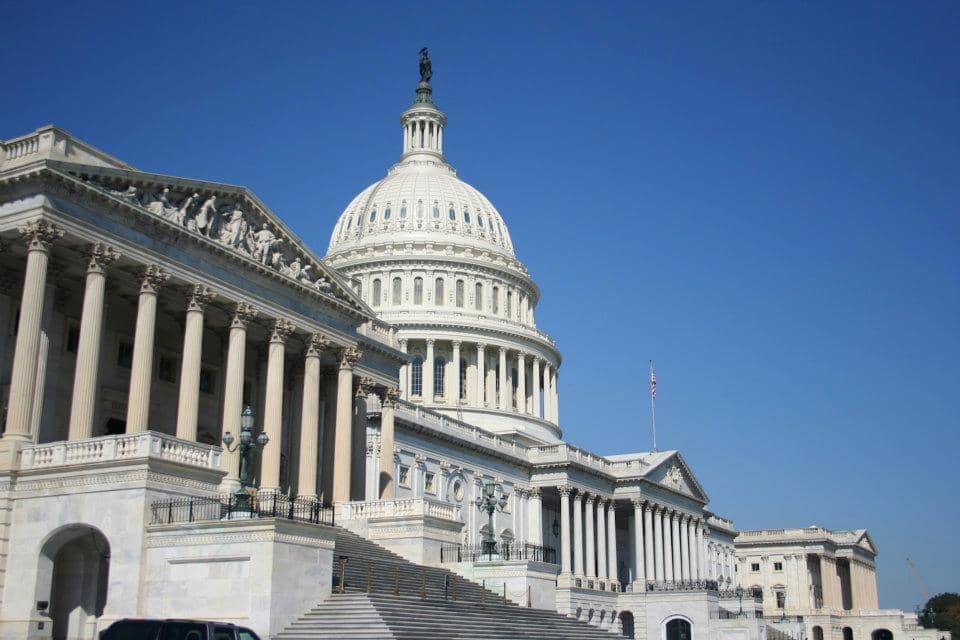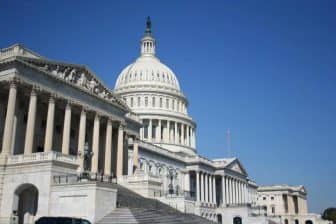

WASHINGTON, DC – A $2.3 trillion 2021 Omnibus Appropriations Bill including a $900 billion COVID-19 Relief Package has cleared Congress and waits President Donald J. Trump’s signature.
The legislation cleared the U.S. House of Representatives on a vote of 359 to 53 and was then approved 92 to 6 by the U.S. Senate. RI’s Congressional delegation supported the bill.
The ‘coronabus’ bill combines a $1.4 trillion Omnibus appropriations bill to fund the federal government through September with the COVID-19 relief and rescue measure designed to provide targeted assistance for health care providers, COVID-19 testing and vaccines, schools, small businesses, unemployment insurance, and a variety of other programs, according RI Sen. Jack Reed’s (D-RI) office.
Reed, who voted for the measure, helped craft key pieces of the Omnibus Appropriations bill and the COVID-19 emergency relief bill to help improve public health, strengthen the economy, and create jobs.
“This long overdue bill is a lifeline that will provide much needed assistance to Rhode Islanders and reinforcements in the fight against COVID-19,” said Reed, a senior member of the Senate Appropriations Committee and Ranking Member of the panel’s Transportation, Housing and Urban Development (THUD) Subcommittee. “It is clear that more help is urgently needed and I will work with President-elect Biden and the incoming Administration to provide it.”
Congressman Jim Langevin (D-RI) also voted for the bill, H.R. 133, consisting of all 12 fiscal year 2021appropriations bills along with the pandemic relief. He praised its measures keeping the federal government open, delivering aid to those most in need, ending the practice of surprise medical billing, and supporting Rhode Island manufacturing with funds for the Virginia-class submarine program.
“The situation is dire. The COVID-19 relief package will get cash into the pockets of working families struggling to make ends meet and deliver additional aid for our small businesses to keep their doors open. Further, it will ensure that people who have lost their jobs can stay afloat and that we carry out robust vaccination operations so that lives can be saved. This package will dedicate considerable resources to help the hardest hit Americans continue to put food on their tables with enhanced food benefits and keep roofs over their heads with an extension of the eviction moratorium and billions in emergency relief for renters.
U.S. Senator Sheldon Whitehouse (D-RI), a senior member of the Senate Environment and Public Works Committee, cheered passage of the funding package for its significant bipartisan climate legislation, an HFC agreement, and expanded incentives for renewable energy.
“The bill we passed tonight will provide some measure of relief, but it is nowhere close to addressing the totality of this crisis, said U.S. Congressman David N. Cicilline (D-RI) after voting for the bipartisan agreement.
This new legislation builds on the programs established by CARES Act and will provide:
- Another round of direct stimulus payments of up to $600 per person for most Americans with another $600 for each dependent child living in the same household
- 11 additional weeks of unemployment insurance benefits, including for self-employed and independent contractors, and an additional $300 unemployment benefit. As well as 11 additional weeks of federal financing for work sharing programs.
- $325 billion for small businesses, including $284 billion for Payroll Protection Program (PPP) loans. This also includes $15 billion for the Save our Stages (SOS) Act, which Senator Reed cosponsored, to provide dedicated assistance for industries that rely on large gatherings, including concert venues and theaters. It also provides $12 billion for Community Development Financial Institutions (CDFIs) and Minority Depository Institutions (MDIs).
- $69 billion in support for vaccines, testing, and contact tracing, including roughly $32 billion for vaccine procurement and distribution, more than $22 billion for testing, tracing, and COVID-19 mitigation, $4.5 billion in mental health and substance use disorder funding, and $9 billion to support health care providers.
- $82 billion in emergency education funding, including $54.3 billion for K-12 education and $22.7 billion for higher education.
- $25 billion in rental and utility assistance for renters, similar to Reed’s Housing Assistance Fund legislation, and extends CDC’s eviction moratorium through January 31, 2021.
- $13 billion in increased benefits for the Supplemental Nutrition Assistance Program (SNAP) and other child nutrition benefits and $400 million for food banks through the Emergency Food Assistance Program (TEFAP) with up to 20 percent for distribution of commodities. It also provides $1.5 billion to fund purchases of food for distribution to those in need, and to provide worker protection measures and retooling support for farmers, fishermen, farmers markets, and food processors to respond to COVID-19.
- $10 billion in child care assistance to families and childcare providers to help stabilize the sector and $250 million for Head Start providers.
- $2 billion to support the motorcoach and bus industry, including intercity bus services, charter bus operators and school bus service providers, based on Reed’s Coronavirus Economic Relief for Transportation Services (CERTS) Act of 2020.
This is a test
